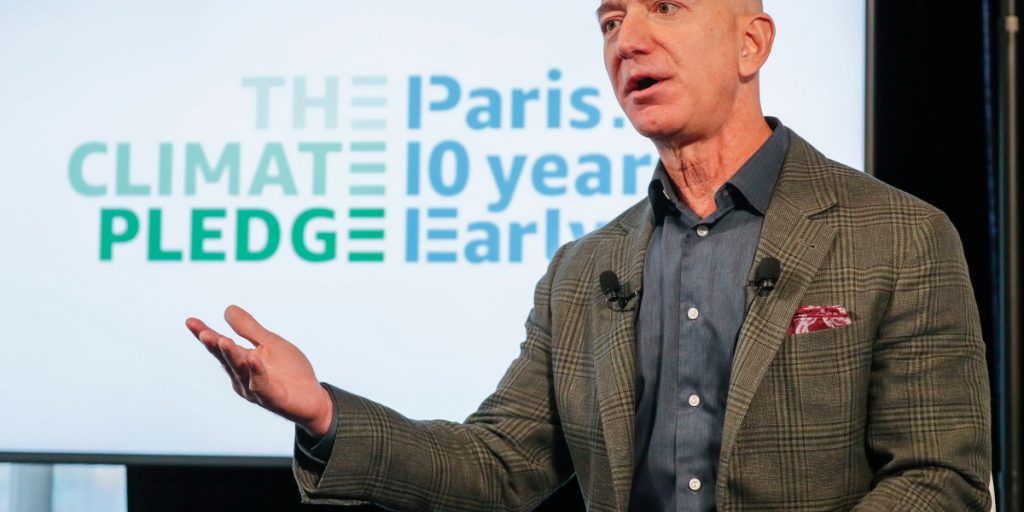Amazon launched a $2 billion venture fund to invest in companies developing ways to cut greenhouse-gas emissions, marking the latest corporate effort to allocate major resources to combating climate change.
Investment areas: In a press release, Amazon said the new fund would focus on startups that could help it and other businesses achieve “net zero” emissions by 2040. It will invest across a wide array of industries, including transportation, energy generation, energy storage, manufacturing, materials, and agriculture.
What’s behind the move? The Seattle retail giant has come under growing pressure from the public and its own employees to shrink its environmental footprint as the dangers of global warming grow. Hundreds of workers walked out of the company’s offices last September to join the global climate strike ahead of the UN Climate Summit that month, part of an effort to push Amazon to take more aggressive steps.
Earlier Amazon efforts: Several days later, Amazon committed to achieve “net zero” emissions by 2040, which means it would need to offset any remaining emissions from its operations through investments in carbon removal projects, such as forest restoration or carbon capture machines. In February, chief executive Jeff Bezos, the world’s richest person, announced he would donate $10 billion of his personal fortune to scientists, activists, and NGOs working to address climate change.
Other corporate initiatives: Amazon is following in the footsteps of another Seattle-area tech behemoth. Earlier this year, Microsoft announced it would spend $1 billion on “carbon reduction, capture, and removal technologies,” as part of an effort to offset the software company’s emissions across its entire history. And back in 2016, cofounder Bill Gates established Breakthrough Energy Ventures, a $1 billion fund dedicated to backing green energy startups.
Bottom line: More money for clean technology is always welcome news. But Amazon still has plenty of work to do on reducing its own emissions, which rose 15% last year to more than 50 million metric tons. And relying on carbon removal projects to offset corporate emissions creates serious challenges, given uncertainties about the permanence and effectiveness of various offset practices like planting trees.
Critics will also note that Amazon—which posted nearly $12 billion in profit last year and has nearly $30 billion in cash on hand—could easily afford to invest far more than $2 billion on these problems. And they will be right.
